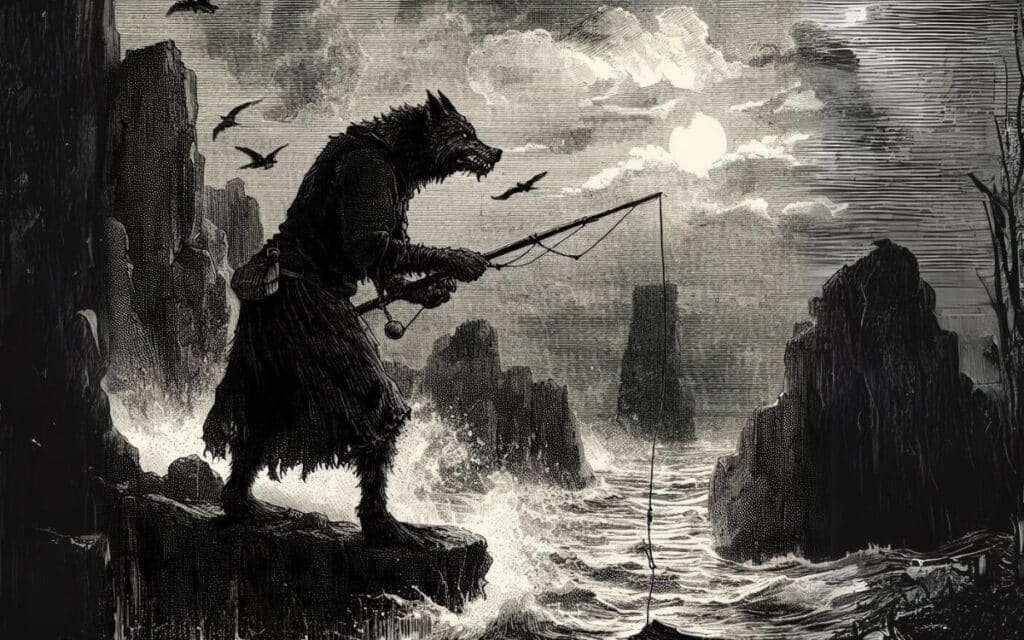The Wulver is Shetland’s friendly twist on the werewolf myth, a benign oddity that poses no harm to humans.

On the remote islands of Shetland, where the North Sea meets the Atlantic, tales of a mysterious, wolf-headed man echo through the ages.
This mysterious creature, known as the Wulver, is an intriguing figure that dwells in the craggy, isolated landscapes far removed from human settlements.
Unlike the vicious, bloodthirsty werewolves of European legend, the Wulver presents a different kind of story. It’s a blend of the mystical and the benevolent.
Imagine venturing deep into the Shetland isolation, where few humans dare to tread.
There, concealed by the rough terrain, you might stumble upon a “Wulver’s Stane”, a home built of stone, or perhaps a cave. These dwellings are often near bodies of water, appropriate given the Wulver’s renowned skills in fishing.
But the exact location of these mythical abodes is elusive, shrouded in mystery and old wives’ tales, adding a layer of allure to the creature’s enigmatic existence.
Despite its fearsome appearance – a human body adorned with the head of a wolf – the Wulver is not an entity of evil.
Contrary to the violence of werewolves, Wulvers are known for their lack of hostility towards humans. They do not shape-shift; they are born as Wulvers and remain so, living their secluded lives in harmony with nature.
Shetland tales of Wulvers
Local stories abound with tales of the Wulver’s extraordinary fishing abilities. The creature is often depicted sitting serenely on a rocky outcrop, rod in hand (or paw), fishing for its primarily piscatorial diet. But its benevolence does not end there.
Folktales regale listeners with stories of the Wulver’s altruism, guiding lost souls back to their villages and even leaving fresh fish on the windowsills of impoverished families.
It’s as if the Wulver, through these acts of kindness, balances the darker, malevolent forces lurking in the realms of folklore.
Perhaps what sets the Wulver apart most significantly are the moral lessons its stories impart. In a society tightly bound by oral tradition, Wulver stories serve as a moral compass. Whether protecting locals from supernatural threats or providing sustenance to the needy, the Wulver is often portrayed as a guardian rather than a menace.
These tales instruct both children and adults about the virtues of compassion, benevolence, and the peril of judging solely by appearances.
While the Wulver’s mystique continues to captivate modern audiences through books, games, and other media, these portrayals often diverge from traditional Shetland narratives.
The Wulver’s essence is sometimes altered to fit contemporary storytelling tastes, but the original folklore remains steadfast in its message and intrigue.
In a world quick to paint the supernatural as malevolent, the Wulver stands as a testament to a more nuanced form of folklore, one where not all is what it seems, and where, sometimes, the creatures lurking in the shadows are the very ones guiding us safely home.
Tell us your thoughts about the Wulver in Shetland in the comments section below!








Wondering if anyone has an attribution for the artwork?
It was created by Spooky Isles